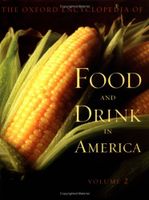Save 25% on ckbk Premium Membership with code FALLFLAVORS 🍁
Factory Farms: Problems
Published 2004
Opposition to intensive animal feeding operations comes from a wide variety of groups. In the 1970s, opposition was due, in part, to the rise of vegetarianism and the concern for world hunger. For instance, in her book Diet for a Small Planet, Francis Moore Lappé argued that feeding vegetable protein to animals rather than directly to humans was a waste of scarce resources at a time when much of the world was going hungry or suffering from serious nutritional deficiencies. Since large-scale intensive livestock operations began producing more meat and dairy products, those concerned with hunger have consistently pointed out that vast amounts of the world’s cropland are used to grow food for confined animals rather than for humans. Today, for example, an estimated 90 percent of soybeans and 33 percent of the world’s grain are consumed as animal feed.
Part of
Advertisement
Related Recipes
-
-
-
-
Related Reference
-
-
-
-
Advertisement



